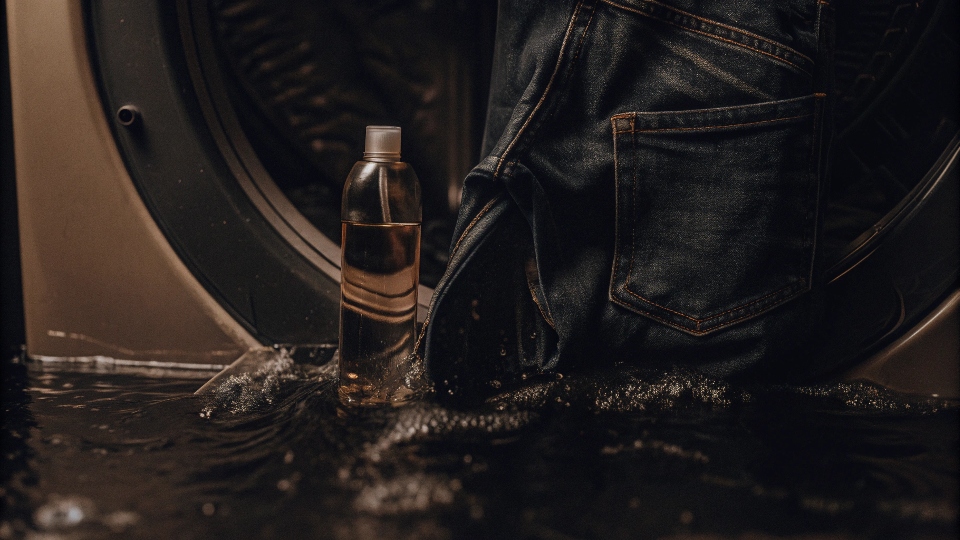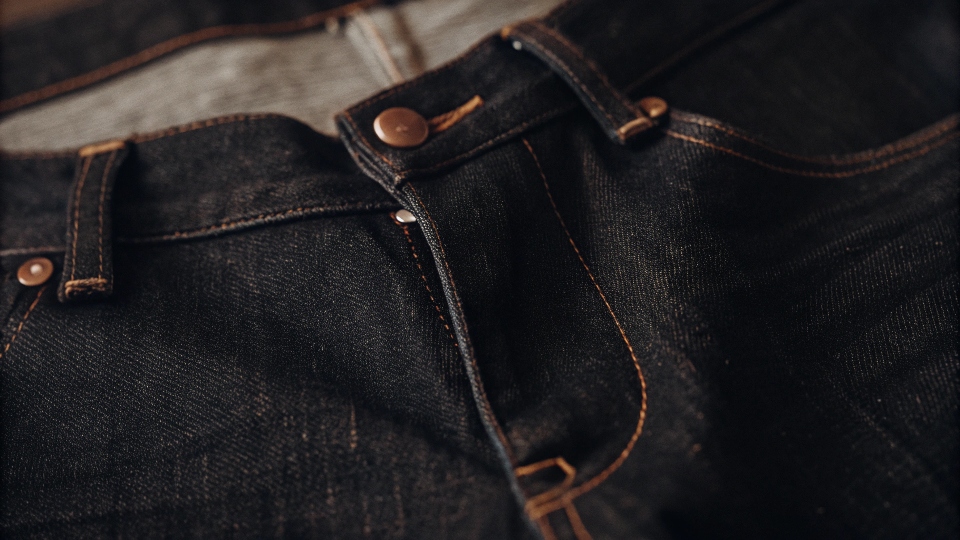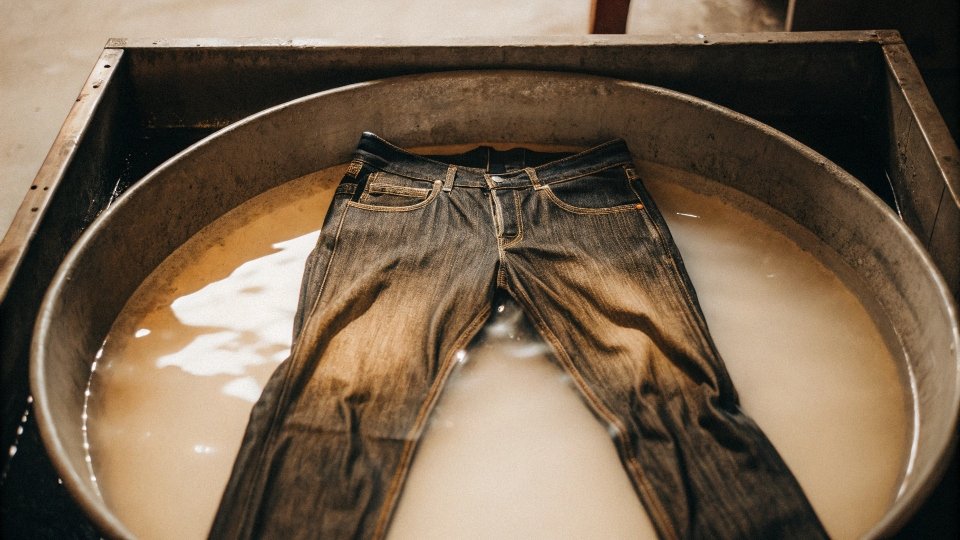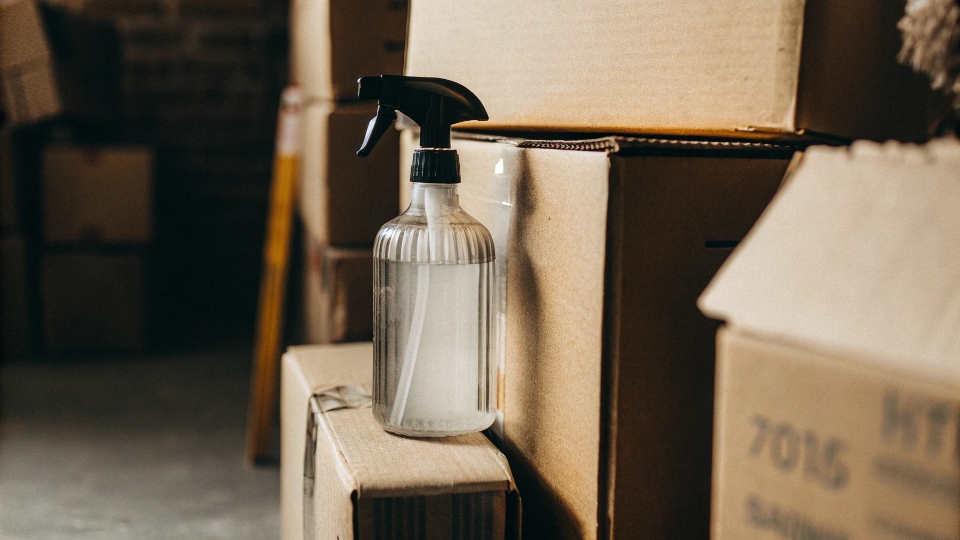You just bought the perfect pair of jeans. You bring them home, try them on again, but notice a strange, sharp chemical smell1. You wash them once, but the odor stubbornly sticks around.
The most effective way to get the factory smell2 out of jeans is to wash them inside out, adding one cup of distilled white vinegar3 to the rinse cycle. The smell is usually from dyes or finishing chemicals, which the acetic acid4 in vinegar neutralizes.
In my two decades of running a denim factory, I've dealt with every kind of fabric and finish. That "new jeans smell" isn't a mystery to me; I know exactly what causes it.
It's a byproduct of the modern manufacturing process, designed to make your jeans look great on the shelf. The good news is that it's almost always easy to fix at home once you know the cause.
How to get rid of the chemical smell in jeans?
Your new jeans have a distinct smell that reminds you of a factory or a laboratory. It's unpleasant, and you worry about what chemical is causing it and if it's safe.
That chemical smell often comes from sulfur-based dyes5 or formaldehyde resins6 used for color and finish. You can easily get rid of it by washing the jeans with a cup of white vinegar.
I once bought a pair of black jeans from Madewell. I loved the fit, but the smell was intense. Interestingly, the exact same style in blue had no smell at all.
I knew instantly it was the dye. Black jeans are often made with sulfur dyes, which can leave a strong odor. I took them home and washed them with vinegar, and the smell was gone completely. This is a very common issue, even with good brands, and the fix is simple.
Dive Deeper: The Cause and The Cure
The two most common culprits for that chemical smell are the dyes and the finishing agents. Understanding them helps you see why the solution works so well.
- Sulfur Dyes: These are used to create deep black and dark indigo colors. They are very effective but can leave behind sulfur compounds that have a distinct "rotten egg" or chemical smell.
- Finishing Resins: Some jeans are treated with formaldehyde-based resins to make them wrinkle-resistant7 or to help lock in the color. The amounts are tiny and regulated for safety, but they can release a sharp, pickle-like odor.
Both of these residues can be neutralized. The acetic acid in white vinegar is excellent at breaking down these compounds and washing them away. Baking soda, which is alkaline, can also help absorb and neutralize other types of odors.
| The Problem | The Expert Solution |
|---|---|
| Strong Sulfur/Dye Smell (Common in black jeans) | Wash with 1 cup of white vinegar in the rinse cycle. |
| Sharp Resin/Chemical Smell | Pre-soak for 2 hours in a 1:4 vinegar-to-water solution before washing. |
| General Musty/Factory Smell | Wash with ½ cup of baking soda8 in the main wash cycle. |
How to get the "China smell" out of clothes?
You notice a particular musty, plastic-like smell on some new clothes, especially those made in China. You might worry it's a sign of poor quality or uncleanliness.
That smell is not about a country; it's about global shipping. It's the scent of anti-mildew agents9 used to protect clothes during long sea voyages in humid containers. A good airing-out followed by a vinegar wash will remove it.
Think about the journey your jeans take. They are made, packed into plastic, put into a cardboard box, and then loaded into a massive steel container.
That container then spends weeks on a ship, crossing the ocean. Temperatures change, and condensation can form, creating the perfect environment for mold and mildew.
To make sure the jeans arrive in perfect condition, manufacturers use special anti-mildew treatments on the packaging.
This is standard practice for products shipped globally from many countries, not just China. It’s a sign of a careful supply chain.
Dive Deeper: The Logistics of Freshness
The logistics behind delivering a flawless product to the customer are complex. Protecting the garment from moisture is a top priority.
1. Why Prevention is Necessary
A single container can hold thousands of pairs of jeans. If mold were to develop on even a few of them, it could spread and ruin the entire shipment, costing thousands of dollars and causing huge delays. The risk is simply too high to ignore.
2. The Tools of Protection
The "shipping smell" usually comes from one of two sources:
- Fungicides: These are chemicals used to prevent the growth of mold. Sometimes they are placed in small packets inside the box (like silica packets, but for mildew).
- Treated Packaging: In other cases, the plastic bags or cardboard boxes themselves are treated with these anti-mildew agents9. The smell then transfers to the fabric.
The solution is a simple two-step process. First, let the jeans air out for a day, preferably outside in the fresh air and sun.
This allows the most volatile compounds to dissipate. Then, wash them with vinegar to neutralize whatever remains.
How to get the smell of formaldehyde out of clothes?
You’ve read online that new clothes can contain formaldehyde, and the word itself sounds alarming. The sharp smell on your jeans makes you worry if they are safe to wear.
To remove the smell of formaldehyde, pre-soak your jeans for at least an hour in a solution of one part white vinegar to four parts cold water, then wash as usual. This neutralizes the finishing resin causing the odor.
It's important to know that formaldehyde-based finishers are used for a good reason. They are the magic behind "wrinkle-free" or "permanent press" finishes and they help lock in dark dyes to prevent fading.
As a manufacturer, I can confirm that the levels used in clothing are very low and strictly regulated by safety standards around the world. The smell is more of a nuisance than a danger for most people.
However, for people with sensitive skin, it's always a good idea to wash new clothes thoroughly before wearing them.
Dive Deeper: Demystifying Formaldehyde in Textiles
The use of formaldehyde in clothing has been a standard practice for decades. Here's a quick breakdown of its role and how to deal with it.
- Its Purpose: The primary role is to create cross-links between the fabric's cellulose fibers (in cotton). This makes the fabric more resilient, helping it resist wrinkling and hold its color better through many washes. It helps the jeans look crisp and perfect when you see them in the store.
- Why It Smells: The smell is from the "off-gassing" of unreacted parts of the resin. This is strongest when the garment is brand new and sealed in plastic.
- Why Vinegar Works: A normal wash might not be enough to break down the resin fully. Soaking the jeans in a vinegar-water solution is much more effective. The acetic acid in the vinegar is a fantastic solvent that breaks down the formaldehyde compound, making it easy for the washing machine to rinse it away completely.
How to get the smell out of Shein jeans?
You bought a pair of trendy jeans from a fast-fashion brand like Shein. The price was great, but the chemical smell is so powerful you can't even stand to have them in your room.
The very strong smell from fast-fashion jeans is usually from aggressive sulfur dyes and sealed-in shipping agents. Use a two-step wash: first with a cup of baking soda, then a second complete wash with a cup of vinegar.
The business model of fast fashion is built on speed. From design to your doorstep in just a few weeks. This means there is no time for garments to air out in a factory or warehouse after they are dyed and finished.
They are made, immediately sealed in plastic bags, and shipped. This traps all the odors from the production process right in the fabric.
To create those trendy, super-dark black colors so cheaply and quickly, very potent sulfur dyes are often used, which are the main source of the overpowering smell.
Dive Deeper: The Fast Fashion Formula for Odor
A stronger smell is often a direct result of a faster and cheaper production cycle.
- No "Curing" Time: In my factory, after a complex wash, jeans will sit and air out. This allows many of the volatile organic compounds (VOCs) from the dyes and finishes to naturally dissipate. The fast-fashion supply chain completely skips this step.
- Aggressive Dyeing: Achieving a very dark, even color on a massive scale quickly requires strong chemicals. The smell is a direct byproduct of this rapid, cost-effective process.
- The One-Two Punch Solution: This situation calls for a more powerful solution.
- Wash 1 (Baking Soda): Start by washing the jeans with your regular detergent and one cup of baking soda. Baking soda is alkaline and excellent at absorbing and neutralizing a wide range of acidic odors.
- Wash 2 (White Vinegar): After the first cycle finishes, run the jeans through a second, full wash cycle. This time, add one cup of white vinegar to the rinse cycle to neutralize any remaining alkaline dye compounds. This double-action method tackles the problem from both sides of the pH scale and is extremely effective for the most stubborn smells.
Conclusion
That factory smell on new jeans comes from the dyes and finishes used to make them. The easiest and most effective way to remove it is to wash them with white vinegar.
-
Find effective methods to eliminate chemical odors from your jeans. ↩
-
Understanding the source of the factory smell can help you address it effectively. ↩
-
Discover the science behind vinegar's effectiveness in neutralizing stubborn odors. ↩
-
Find out how acetic acid neutralizes chemical smells in fabrics. ↩
-
Learn about the impact of sulfur-based dyes on fabric and their odors. ↩
-
Explore the role of formaldehyde in denim production and its safety. ↩
-
Explore the technology behind wrinkle-resistant finishes in denim. ↩
-
Learn about baking soda's properties and its effectiveness in odor removal. ↩
-
Discover how anti-mildew agents protect garments during shipping. ↩ ↩










